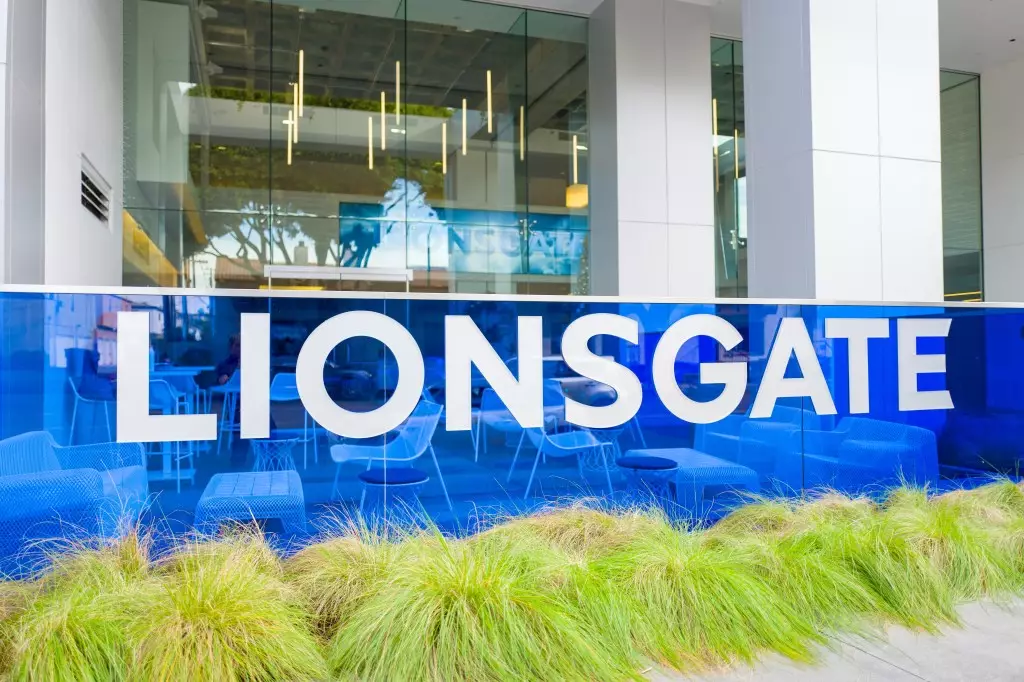Lionsgate, a prominent player in the entertainment industry, is on the brink of a significant transformation. The anticipated separation of Lionsgate Studios and Starz promises to reshape the landscape of both entities, embodying a strategic response to evolving market dynamics and consumer preferences. This article delves into the implications of the upcoming split, the challenges encountered during the regulatory process, and the overarching trends within the entertainment sector that are influencing this pivotal moment.
As Lionsgate CEO Jon Feltheimer recently revealed, the long-awaited division of Lionsgate Studios and Starz is projected to occur in April 2024, contingent upon regulatory approvals from the Securities and Exchange Commission (SEC). Feltheimer’s comments during an earnings conference call emphasized not only the urgency of the separation but also the level of scrutiny the process has attracted. The company is currently engaged in a detailed regulatory review of its joint proxy and registration statement, which necessitates updating financial data to reflect year-end figures for 2024.
The prolonged timeline for the separation illustrates the complexities inherent in the entertainment sector’s regulatory landscape. Chief Financial Officer James Barge addressed these concerns, highlighting that the SEC had made additional requests that Lionsgate is currently addressing. These bureaucratic hurdles have resulted in an extended waiting period for shareholders, with the actual splitting of the companies anticipated to occur shortly after a shareholder meeting scheduled for mid to late April.
Furthermore, Feltheimer has disclosed the establishment of distinct capital structures for both Lionsgate Studios and Starz. The new Lionsgate Studios will benefit from an $800 million revolving credit facility that is set to activate upon separation, indicating a concerted effort to ensure financial stability and operational independence for both entities.
The financial performance of Lionsgate reveals a stark contrast between its television production division and its film segment. In the recent fiscal third quarter ending December 31, 2024, the television production arm experienced a remarkable 63% surge in revenue, reaching $405 million. This growth can be attributed to an uptick in episodic deliveries, licensing opportunities, and a rebound from the previous year’s industry strikes. Notably, the segment profit climbed to $60.9 million, a significant leap from just $9.1 million the same period last year.
Conversely, Lionsgate’s motion picture division has not enjoyed the same level of success. The revenue from film productions dwindled to $309 million, down from $443 million, with segment profit also seeing a decline. This challenging performance has been partly attributed to tough year-over-year comparisons with major titles, including “The Hunger Games: The Ballad of Songbirds and Snakes” and “Saw X.” However, the narrative is beginning to shift as we enter 2024, with promising openings for films like “Den of Thieves: Pantera” and “Flight Risk” potentially signaling a recovery.
Starz, on the other hand, witnessed a dip in revenue and profits amidst these shifts. Despite a sequential growth of 170,000 OTT subscribers, Starz reported a decline in revenue and profit, further complicating the narrative of the company’s growth trajectory. This downturn underscores the competitive challenges faced by streaming platforms in an era when content proliferation is the norm.
As Lionsgate prepares for its separation, it is also positioned to harness new market opportunities that could redefine its future. Feltheimer noted that the entertainment landscape has reached an “inflection point,” suggesting a period ripe for transformation. The shift towards bundling content, extending digital services to linear platforms, and adapting to market disruptions present a unique chance for Starz to innovate and scale its business.
Lionsgate’s decision to separate its entities could lead to increased strategic focus for both divisions. While Lionsgate Studios may pursue a more traditional film and television revenue model, Starz could tailor its offerings to better meet the expectations of a streaming-savvy audience. The ability to pivot in response to consumer preferences will be crucial as both entities embark on their independent journeys.
The impending separation of Lionsgate Studios and Starz marks a critical juncture in the entertainment landscape. By seeking regulatory clarity and establishing distinct operational frameworks, Lionsgate is positioning itself to confront the challenges and opportunities that lie ahead. As the industry evolves, it remains to be seen how both companies will navigate the shifting sands of audience demand, technological advancements, and competitive pressures. The coming months will undoubtedly be pivotal in shaping the future of both Lionsgate Studios and Starz.


Leave a Reply